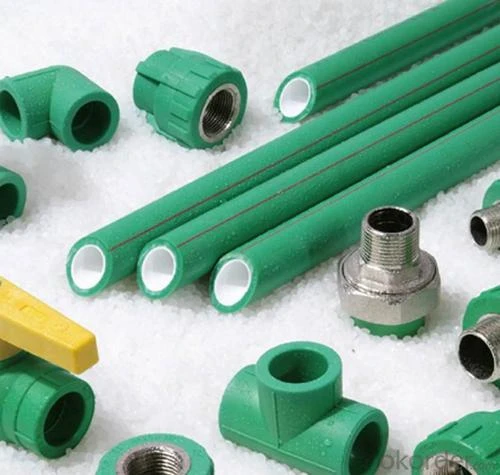Introduction
PPR (Polypropylene Random Copolymer) pipe NBR 15884 are a type of plastic piping system made from a thermoplastic polymer known for its versatility and durability. PPR pipes are increasingly popular in plumbing and industrial applications due to their excellent performance characteristics, ease of installation, and long service life. This article will explore the features of PPR pipes and their various applications.
Features of PPR Pipe
- Durability
- PPR pipes known for their long lifespan, often exceeding 50 years when properly installed and maintained. They are resistant to corrosion, rust, and scale build-up, making them suitable for a wide range of applications.
- Chemical Resistance
- PPR pipes can withstand a variety of chemicals, making them ideal for transporting corrosive fluids in industrial settings. They are compatible with most acids, alkalis, and salts, which adds to their versatility.
Temperature Resistance
- PPR pipes can handle high temperatures, typically up to 95°C (203°F), making them suitable for both hot and cold water applications. This feature is particularly advantageous in domestic hot water systems and heating applications.
- Pressure Resistance
- PPR pipes designed to withstand high pressure, making them suitable for various water supply systems, including residential plumbing and high-rise buildings.
- Non-Toxic and Safe
- PPR pipe are non-toxic and do not leach harmful chemicals into the water supply, ensuring the safe transport of potable water. This property is crucial for applications in drinking water systems.
Lightweight and Easy to Handle
- Compared to metal pipes, PPR pipes are lightweight, making them easier to transport and install. Their lightweight nature reduces transportation costs and labor requirements during installation.
- Low Friction Loss
- The smooth inner surface of PPR pipe minimizes friction loss, resulting in efficient fluid flow and reduced energy consumption in pumping systems.
- Eco-Friendly
- PPR pipes are 100% recyclable, making them an environmentally friendly choice. Their production process generates lower emissions compared to traditional materials like metal or PVC.

Applications of PPR Pipe
- Residential Plumbing
- PPR pipes widely used in residential plumbing systems for hot and cold water supply. Their durability and safety make them an excellent choice for domestic water transport.
- Commercial Buildings
- In commercial settings, PPR pipes used for plumbing and heating systems in offices, hotels, hospitals, and shopping centers. Their ability to handle high pressure and temperature makes them suitable for various applications.
- Industrial Applications
- PPR pipes are ideal for industrial fluid transport, particularly in industries that require chemical resistance, such as chemical processing, food and beverage, and pharmaceuticals.
Irrigation Systems PPR pipe
- PPR pipes commonly used in agricultural irrigation systems due to their resistance to chemicals and corrosion. They help in efficient water management and distribution for crops.
- Heating Systems
- PPR pipes utilized in underfloor heating systems and other heating applications due to their ability to withstand high temperatures and pressures.
- Fire Fighting Systems
- Due to their high-pressure resistance and durability, PPR pipes used in fire protection systems for water supply, ensuring reliable access to water during emergencies.
- Municipal Water Supply
- PPR pipes also employed in municipal water supply networks, where they ensure the safe transport of drinking water over long distances.
Conclusion
PPR pipes are a versatile and reliable piping solution that offers numerous advantages in various applications. Their durability, chemical resistance, temperature tolerance, and eco-friendliness make them an excellent choice for plumbing, industrial, agricultural, and municipal uses. As the demand for efficient and safe water transport systems continues to grow, PPR pipes will likely remain a preferred option in the industry.

















